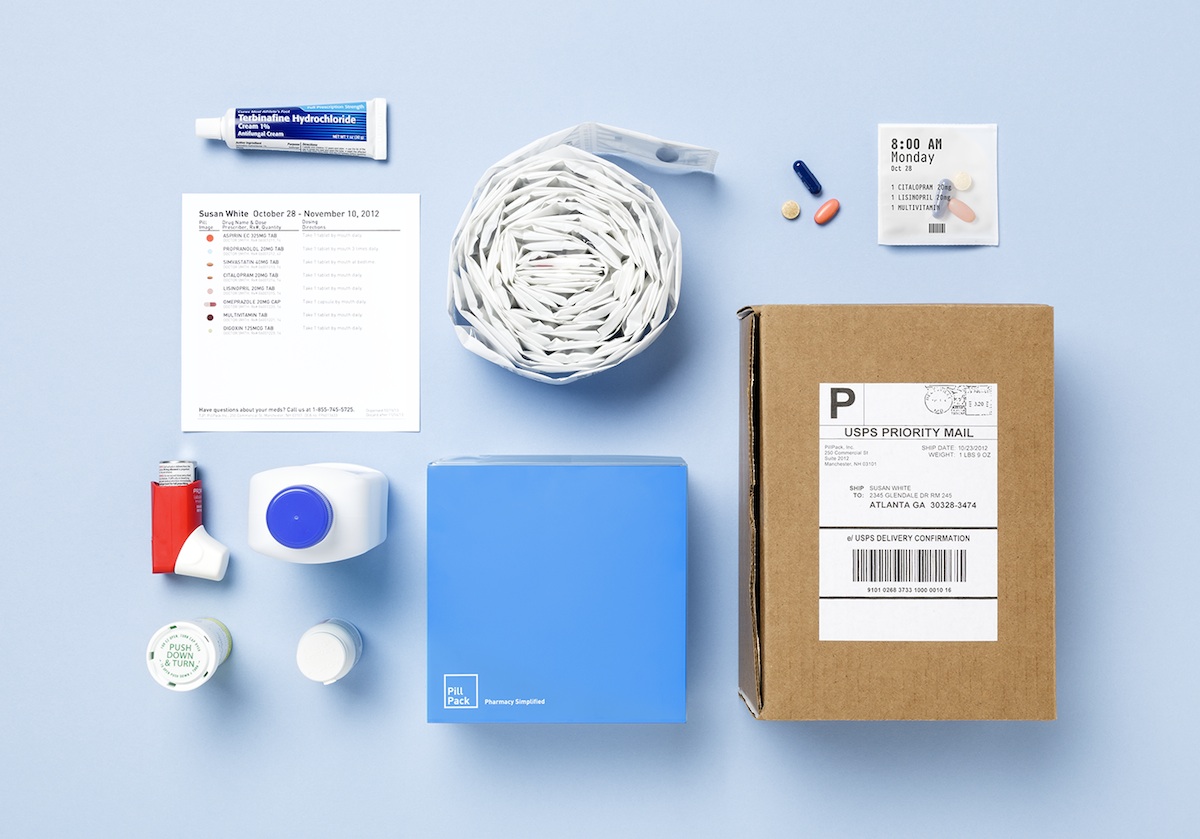PillPack Is Bringing the Pharmacy to Your Doorstep
It seems like TJ Parker was destined to be a pharmacist. He grew up in his father’s pharmacy in Concord, New Hampshire, where he learned the tricks of the trade—and saw some of its major problems and complications.
“I saw firsthand how difficult it was to manage multiple meds. You had multiple pill bottles, you had an Excel spreadsheet up on the fridge with all your times to take medication, you had to go to the pharmacy two or three times a month, when you’re there there’s often a line,” Parker remembers. “It really becomes this time consuming, arduous process.”
Parker enrolled at the Massachusetts College of Pharmacy and Health Sciences determined to fix what he saw as flaws in the system. He began working with Elliot Cohen, who was then an MBA student at MIT, and the two combined their pharmaceutical and technical knowledge to launch a company called PillPack in February 2014.
Essentially, PillPack is a high-tech, quality-controlled drug delivery service. Users’ prescriptions are transferred over from their previous pharmacy, and then PillPack’s team manages the data on medication needs, dosage start dates, and refill schedules in order to deliver the products to customers directly every two weeks, complete with instructions for when and how to take each medicine. As of now, PillPack operates in Washington, D.C. and 41 states, Massachusetts included, and the service costs nothing beyond a traditional co-pay.
“We are trying to reimagine what the pharmacy industry should look like,” Parker says. “If you look at industries that have the worst customer experience right now, healthcare is very close to the top, if not at the top, of that list. There’s a very real opportunity not just to [improve] pharmacy but across the spectrum of healthcare services, to rethink what the experience should look like.”
Parker says that being based near Boston—business operations are run out of a Davis Square office in Somerville, while the distribution center is in Manchester, New Hampshire—is invaluable to achieving that goal. “Specific to Boston, I think it’s a really good place to be building a healthcare technology company,” he says. “You have some of the best hospitals in the world, you have some of the best medical schools in the world, and some of the best technologists in the world, so to bring all those things together is probably the most effective way to start to make an impact in healthcare.”
Parker says he isn’t sure where the company will go in the future, though he says mobile could be the next venture. Still, he says, PillPack’s direction is largely dependent on customer needs. “We don’t plan a few years ahead of time,” he says. “We very much look at the feedback and figure out what to build.”



